How do families grow potted grapes
How do families grow potted grapes
Potted grapes are glittering and translucent, exquisite and lovely, with green grape leaves and curved Saha branches. It is also interesting to expect the vine to sprout, blossom and bear fruit. Grapes are very popular in potted plants at home. Household potted grape maintenance indoor potted grape needs to master the following planting points.
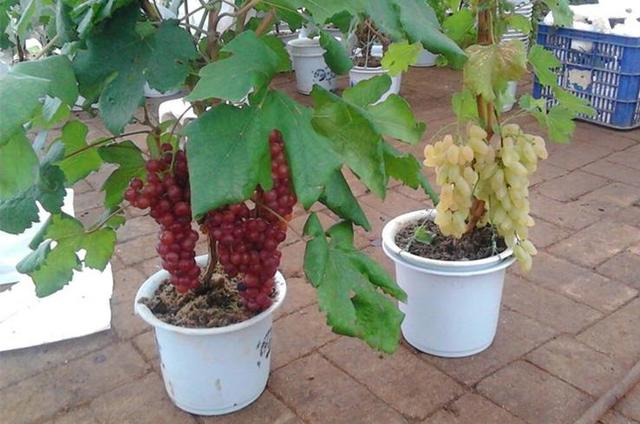
How do families grow potted grapes
1 selecting basin
Potted grape containers usually use earthen pots, which have good drainage and air permeability, and the price is cheaper. Pottery pots, porcelain pots, plastic pots (buckets), wooden cases, buckets, cement tanks and other containers can also be used. The shape of the container is round, polygonal, rectangular and so on. There is also a difference in depth. Family potted plants generally use diameter 25~30cm and deep 15~30cm.
2 prepare the basin soil
It should have good air permeability and drainage performance, good physical and chemical properties, rich in organic matter and nutrients, suitable pH, no diseases and insect pests, and the matching ratio is 30% 50% for garden soil, 20% 30% for humus or organic fertilizer, and 20% 30% for river sand. The prepared culture soil should be loose, fertile and have excellent physical and chemical properties. The prepared basin soil can be disinfected with 0.1% formalin spray, 500ml for each cube basin soil, and high temperature steam disinfection if possible.
3 planting time
One-or two-year-old grafted seedlings with roots or cuttings with roots can be selected and can be planted every year from February to March (nutrition bowl seedlings with roots can be planted from February to April to early May and June every year).
4 seedlings and planting
The seedlings used in potted grapes can be cultivated by cutting, grafting, striping, etc., or grape plants of 1 ~ 3 years old can be transplanted with soil masses before sprouting. When planting, the hole in the center of the basin bottom is cushioned with tiles, put on a layer of pebbles, about 3cm thick, and then put into part of the basin soil to make a steamed bread, and the trimmed seedling roots are scattered on it in all directions, then fill the soil, and gently press it until the 3~5cm leaves the basin mouth, and then fill the soil and water until the bottom hole flows out. After planting, put it in a warm place and cover it with plastic film to preserve moisture.
5 potted grapes must be placed on the sunny balcony
It can sprout and grow when the room temperature is above 10 ℃, the time temperature should not be less than 5 ℃, the flowering period should be 25 ℃, the berry expansion period should be 28 ℃, and the humidity of the basin soil should be kept at about 70%.
6 Water and fertilizer management
Sufficient water was irrigated once in 3-4 days in early spring, once every 2-3 days in June and July, and 1-2 times in dormant period in December. In the period of sprouting, flowering and fruit setting, sheep manure water was applied once with water and ammonia, phosphorus and potassium fertilizer was sprayed once on the leaf, especially zinc fertilizer was sprayed before and after flowering. The application of basic fertilizer is combined with soil exchange, and topdressing is applied in liquid during the growing period to prevent root burning caused by excessive concentration. The unfruited potted seedlings started from the seedling height 20cm (6-7 leaves), applied cake fertilizer and water once every 7-10 days, and applied to the end of September, the fruited seedlings had better be applied once every 5 days. Foliar fertilizer spraying is effective and economical by spraying 0.1%-0.3% urea for 3 times in the early growth stage, and spraying 0.3% potassium dihydrogen phosphate solution every 7-10 days for 3-4 times from the fruit expansion period. When watering, the water temperature should be close to the temperature of the basin soil, and it should be watered before 10: 00 in the morning and after 4: 00 in the afternoon. Generally, it should be watered every 2-3 days in early spring. With the increase of air temperature, the evaporation can be irrigated once every 2-2 days, and the watering times should be kept moist.
7 leave the vine and set the branch
The grapes planted in that year can leave 1 or 2 elongated vines. The grape for many years can keep 3-4 extended vines, each vine has 1 fruiting branch every 3-4 years, those with ears have 3-4 leaves above the ear, and those without ears can grow to 3-4 leaves (reserved for next year's fruiting branches). Lengthening the vine length to about 1m, except for the extended vine, the auxiliary tip will grow 1-2 leaves to remove the heart. If the secondary results are promoted, no leaves can be left, forcing the winter buds to germinate ahead of time.
8 getting on the shelf and binding
When the spring grape leaves extend the vine, insert three 1.3m long bamboo poles or sticks into the basin in a triangle, and the top is tied together and secured. With the growth of the main side vine of the grape, screw or tie up along the tripod (called Jinlong pan jade column type), pay attention to keep a certain distance between the vine and the vine, so that each ear is exposed outside. Can be dragged to the roof or outdoors with rope on the balcony.
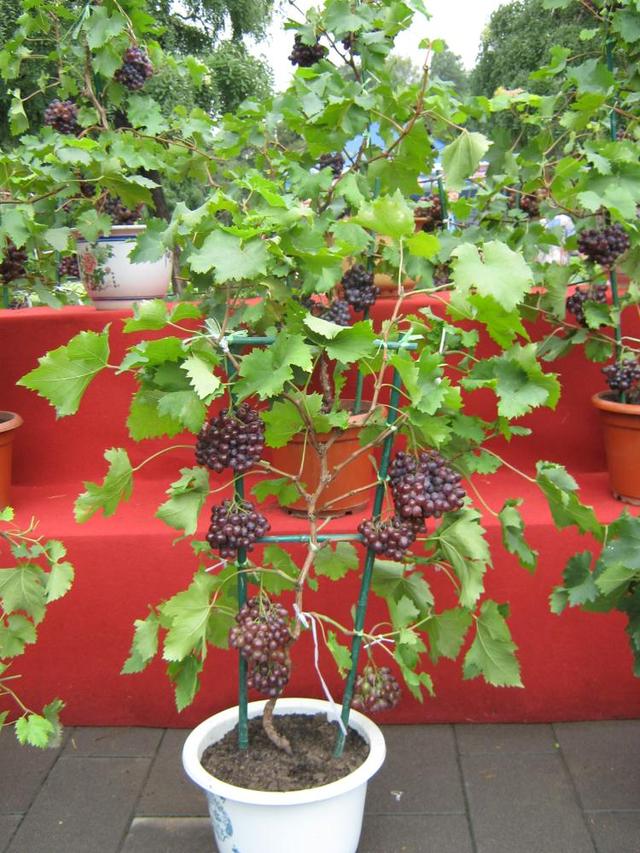
How do families grow potted grapes
9 changing soil and pruning roots
The soil change period can be carried out at the end of autumn or before sprouting in spring, first pour through the water, then pour out the whole root system and basin soil, and then use bamboo pieces to loosen part of the soil mass covered with roots, and subtract part of the surrounding roots, the long roots can be reduced by about half of the length, and then re-planted in the new culture soil.
10 adjust ear and yield
Adjust the ear in time before flowering, leaving one ear for each fruiting branch and removing the rest. 33~40cm diameter pot 2-3 years old can carry fruit 1.5~2kg, 4 years later 1 pot can carry fruit 5~10kg, larger pot will have higher yield.
11 dormant overwintering
Winter pruning was carried out after harvest in autumn. 1 vine was cut at 70~80cm 1-2 years after planting, 1 fruiting branch was left at every 20cm, and 2-3 bud eyes were cut short. For more than 3 years, 4 extended vines were cut short at the 8th and 9th nodes (about 1m). From December of each year to January of the following year, potted grapes can be placed above 0 ℃, and the empty rooms or vegetable cellars below 10 ℃ can be dormant over the winter. generally, normal physiological dormancy can be completed within 30 to 45 days. Water should be watered once before or during dormancy to keep the basin soil moist. The dormancy of potted grapes can not be ignored, which is one of the important reasons for not blooming and fruiting.
12 pest control
There are few pests in potted grapes, and the common diseases are downy mildew, white rot, anthrax, black pox and so on. The grape can be sprayed with stone sulfur mixture of 3-5 Baume degrees during the dormant period, and 1 ∶ 0.5 ∶ 200 Bordeaux solution or 500 times compound carbendazim solution is sprayed every 15 days after germination.
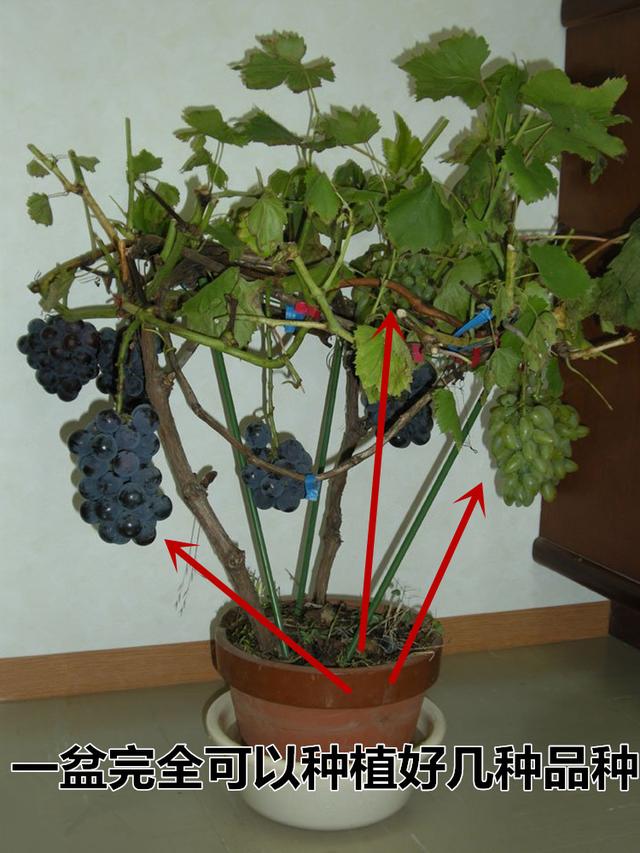
How do families grow potted grapes
- Prev
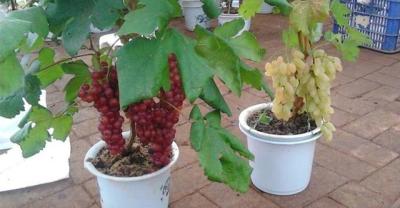
Planting method of potted chili pepper on balcony
Potted vegetables on the balcony are never less than chili peppers, which are not easy to grow insects, and families also like to eat them, but potted chili peppers bear too little, not enough.
- Next
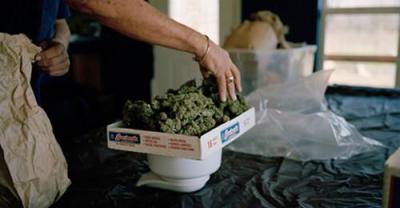
Key points of planting techniques of potted grape
Potted grape planting techniques 1 potted grape varieties planted in many varieties, such as Jufeng, Red Fuji, etc., they mature early, strong adaptability, can root.
Related
- Fuxing push coffee new agricultural production and marketing class: lack of small-scale processing plants
- Jujube rice field leisure farm deep ploughing Yilan for five years to create a space for organic food and play
- Nongyu Farm-A trial of organic papaya for brave women with advanced technology
- Four points for attention in the prevention and control of diseases and insect pests of edible fungi
- How to add nutrient solution to Edible Fungi
- Is there any good way to control edible fungus mites?
- Open Inoculation Technology of Edible Fungi
- Is there any clever way to use fertilizer for edible fungus in winter?
- What agents are used to kill the pathogens of edible fungi in the mushroom shed?
- Rapid drying of Edible Fungi

